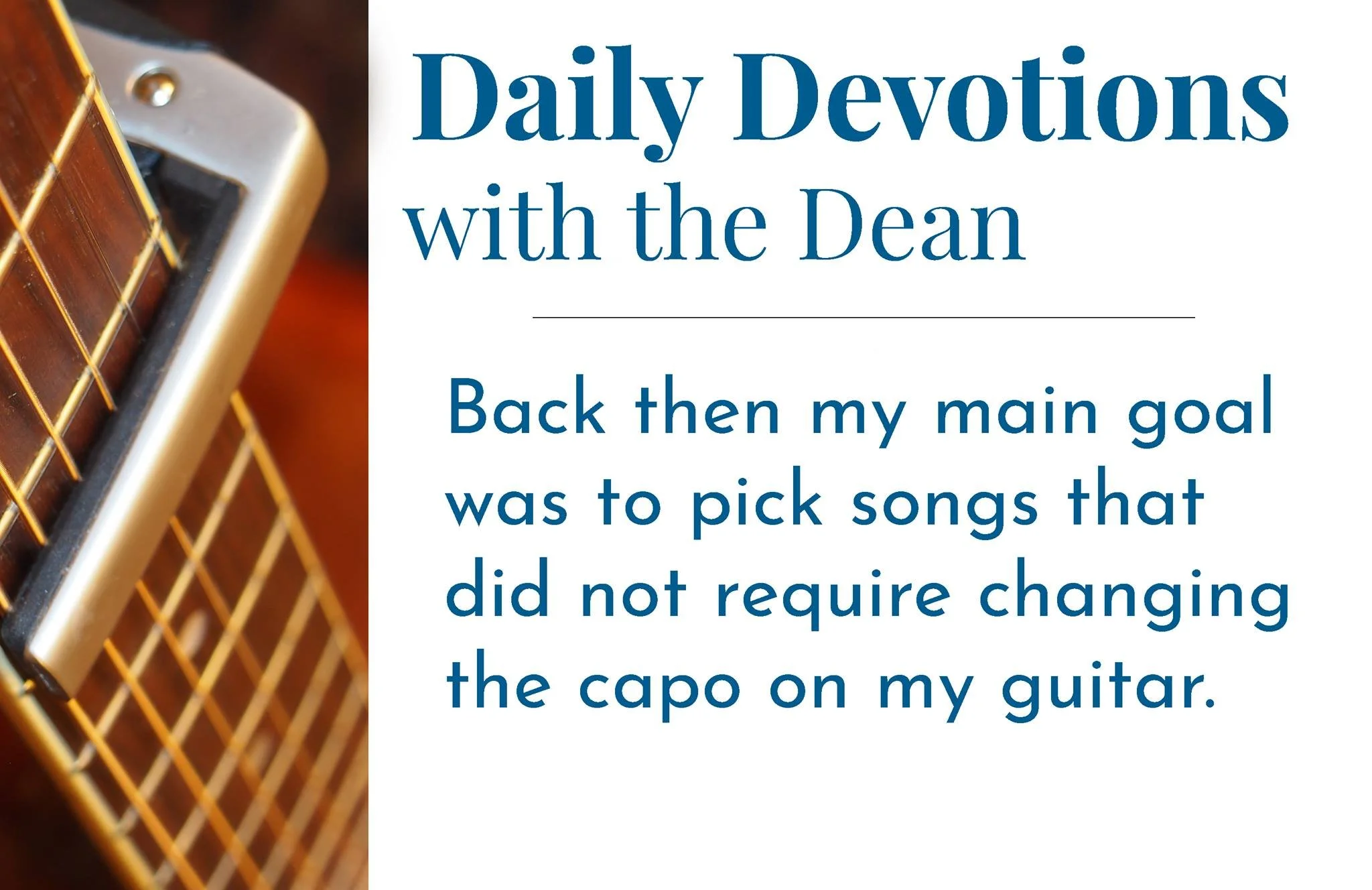Monday • 6/30/2025 •
Welcome to Daily Office Devotions. I’m Reggie Kidd. Thanks for joining me.
We’re taking a detour from the Daily Office readings last week and this week. Instead, we’re thinking through various facets of worship and how our Lord provides meaningful communion with him through our formal corporate worship as well as in individual worship in our daily devotions. The thoughts offered here are excerpts (sometimes lightly edited) from articles I wrote for Worship Leader magazine a few years ago.
They come from a season in my life when I was on a journey from more generic free-form worship to worship shaped by the classic liturgy. I hope these observations help you in your own quest to love God and your neighbor.
“Jesus Christ, Our Worship Leader,” Part One of Five
The late Scottish theologian James Torrance often recounted his conversation with a man who had lost his faith and was facing his wife’s imminent death to cancer. “I’ve been trying to pray, but I can’t,” lamented the man, broken and ashamed.
“I can’t tell you ‘how’ to pray, friend. But I can point you to the ‘who’ of prayer,” was the effect of Torrance’s reply. Torrance reminded the man that Jesus promised Peter he would pray for him even through Peter’s denial (Luke 22:31). In fact, Jesus returned from the dead to restore their relationship (John 21:15-24). Paul the apostle, Torrance explained, acknowledged that we don’t know how to pray, which is precisely why the Father set his risen Son at his own right hand to intercede for us, and placed his Holy Spirit within us to do the same (Rom. 8:26,34). Jesus, even now, said Torrance, “is praying for you … and with you and in you.”
Soon after that conversation, Torrance had the opportunity to introduce both the man and his wife to what he calls the Trinity’s “grammar of grace”: Our “Father … has given us Christ and the Spirit to draw us to himself in prayer.” At the heart of that grammar is the priesthood of Jesus Christ: “our great high priest, touched with a feeling of our infirmities, interceding (to the Father) for us, opening our hearts by the Spirit.”
As with prayer, so with worship: the “how” is not as important as the “who.” Torrance challenged a generation of theology students to repent of “Unitarian” worship and embrace “Trinitarian” worship. According to Torrance, you know your worship is Unitarian (even if you label it Christian) if your worship is about various techniques of experiencing God on your own. You know your worship is Trinitarian if your worship is about Jesus, your elder brother and great high priest, drawing you into the eternal communion of love that has always characterized God’s own life as Loving Father, Beloved Son, and Holy Spirit, who is love itself.
I’ve led worship long enough to know the lure of technique-obsessed, Unitarian worship. I’ve seen it practiced over and over again. Along the way, I have learned to look for a different way, and to know the surprise and delight of the Trinity’s “grammar of grace,” where Jesus is our true worship leader.
A New Kind of Priest
We are not the first generation to have to figure out how to move from Unitarian to Trinitarian worship. The anonymous writer of the Epistle to the Hebrews helped a first-century Jewish congregation see how monumental the shift is from an old way of worship to a new, where the Son is worthy of worship alongside the Father (Heb. 1:3,8,10-12; 13:8), as is the Holy Spirit (Heb. 6:4; 10:29).
Of particular concern to the writer to the Hebrews, though, is the special nature of Jesus’s role as priest in representing us to the Father and the Father to us. Jesus is the unique God-Man priest “in the order of Melchizedek,” whose priesthood is eternal and whose once-for-all self-offering brought a redemption and forgiveness that is complete and needs no augmentation. Jesus is a priest whose work is done, in one sense. He sits at the right hand of the Father because he does not have to make any further offerings. By his sacrifice, Jesus has assured God’s satisfaction in us, and has cleansed our consciences. We don’t have to worry about guilt or death any longer.
But in another sense, Jesus’s priesthood goes into overdrive when his sacrificial work is completed. Now he serves as “Liturgist (Gk: leitourgos) in the sanctuary and the true tent which is set up not by man but by the Lord” (Heb. 8:2).
Throughout his brilliant letter, the writer carefully unpacks different elements of Jesus’s ongoing liturgical leadership. They couldn’t be more relevant to what we do when we worship.
Through the rest of this week, we explore the way Jesus exquisitely leads worship in our midst: he prays for us, declares the Father’s name to us, sings over us in love, and brings us bread and wine from God’s holy heavenly altar.
Be blessed this day,
Reggie Kidd+















